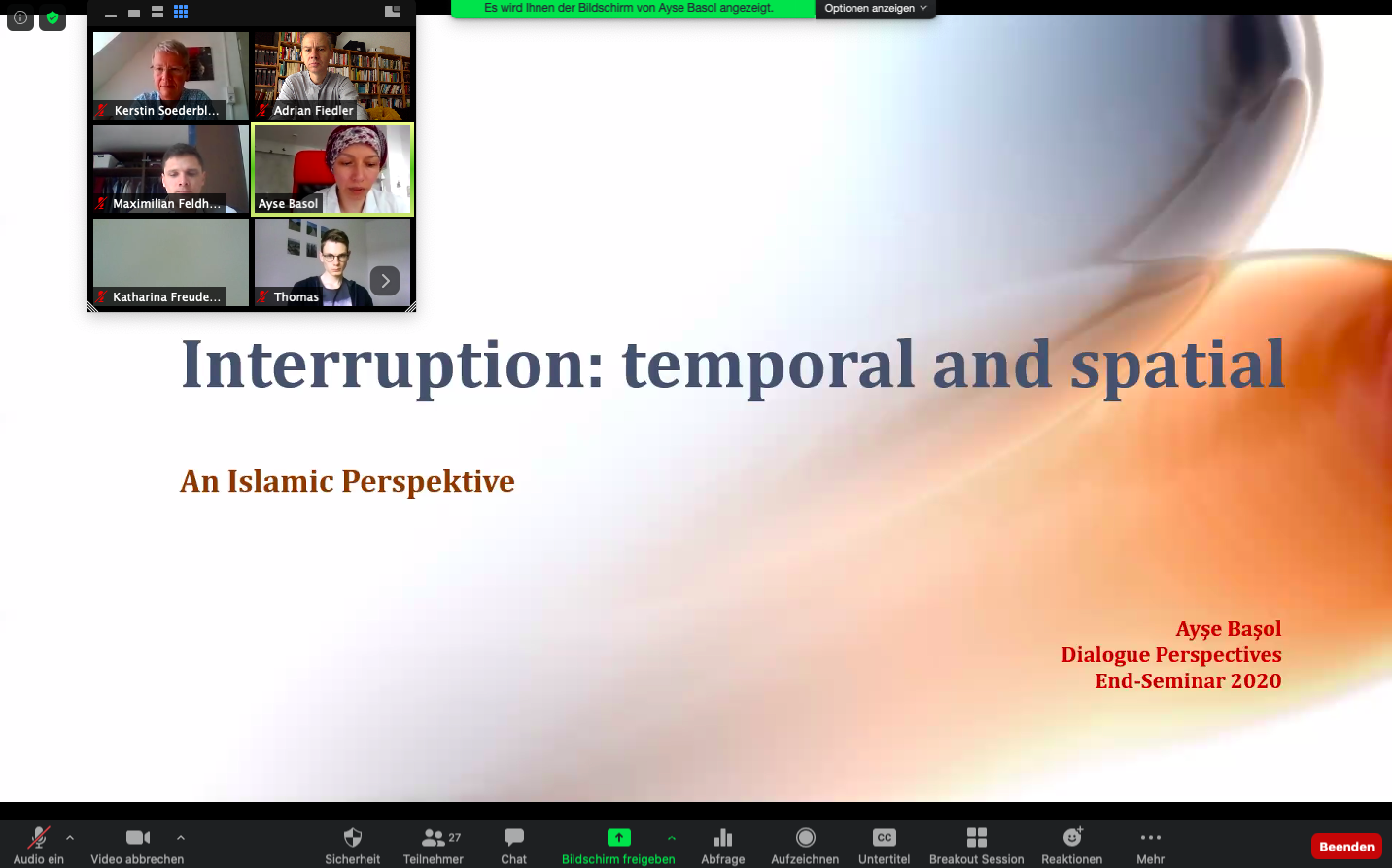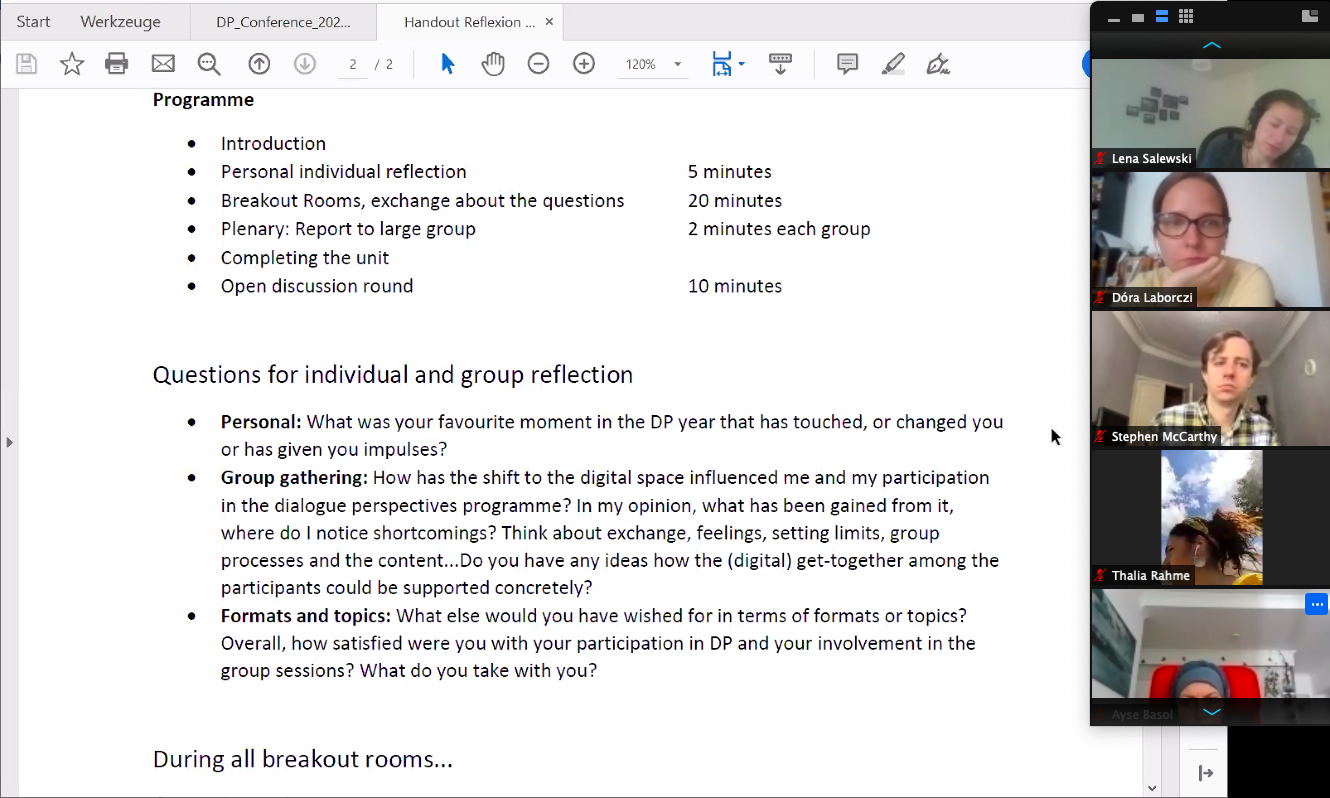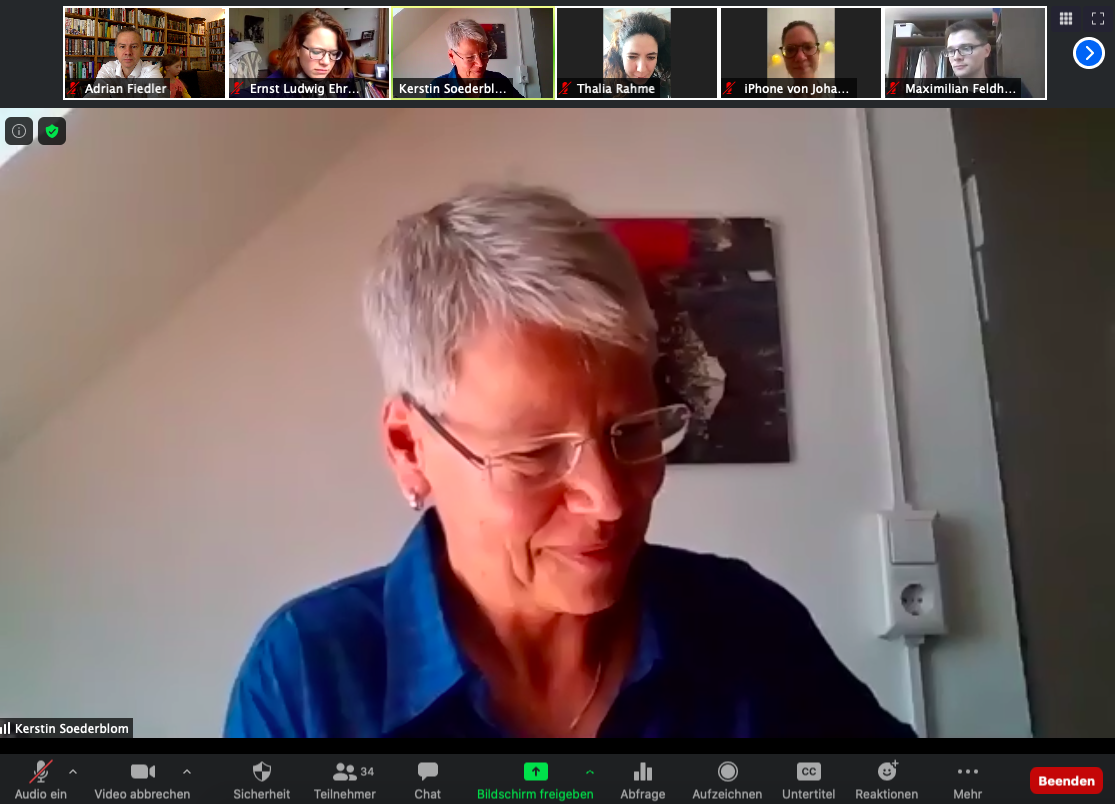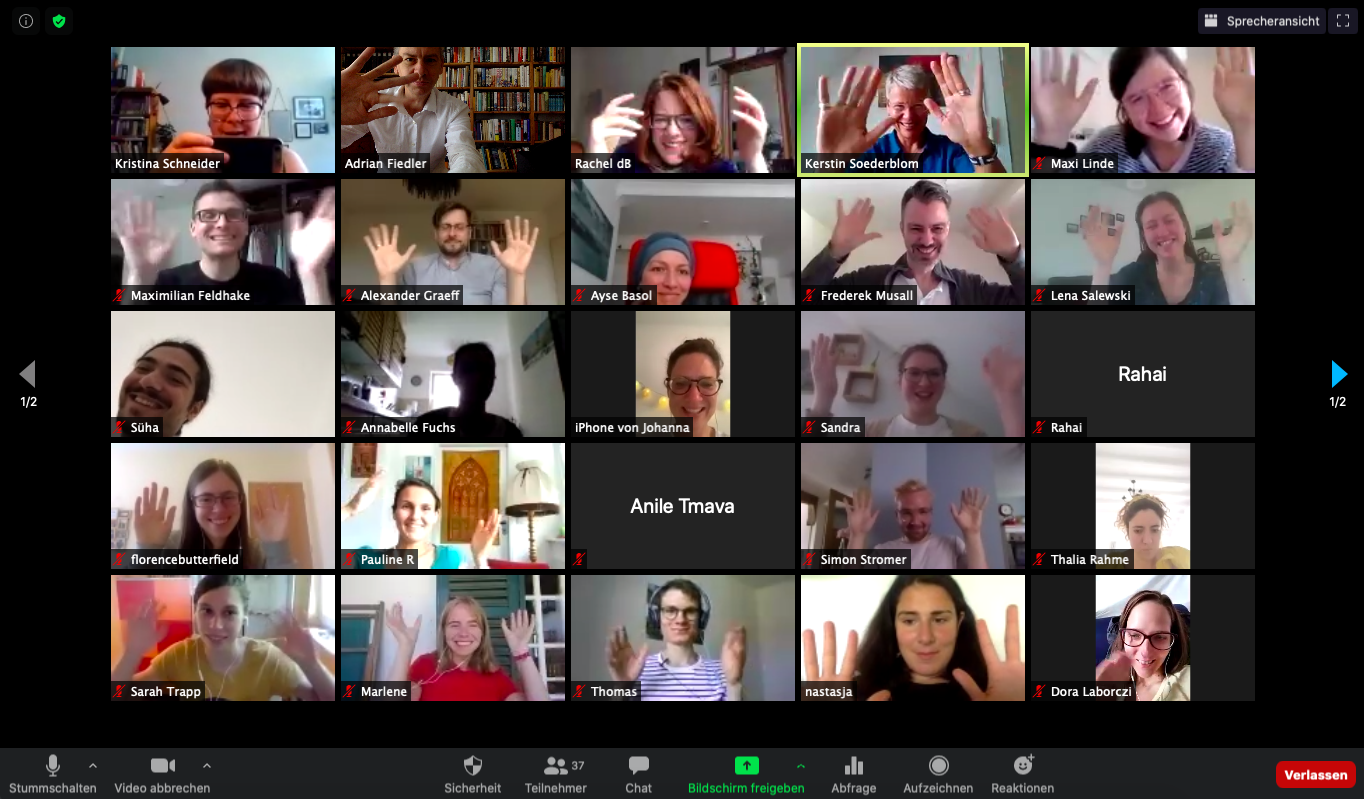Retrospect: International Conference 2020

A programme year that was remarkable in many respects came to an end with this year’s conference in June. As with the spring seminar in March, we moved the four-day conference to the digital realm. There, we closed the programme year with our participants, working group leaders, and clerical advisors over the course of 10 sessions.
Following the opening plenary session, the first session on Thursday afternoon (18 June) brought back together the working group leaders from the autumn seminar 2019 on the topic “Religion and Identity” with Iman Al Nassre, Hannah Hünniger, Dr. Alexander Graeff and Prof. Frederek Musall. An important aspect of the joint work over the course of the programme year was the ongoing confrontation of the topical focal points, which continued even after the respective seminar. This meant that the participants had the opportunity to enter breakout discussion rooms with their working group leaders to further build on discussions begun in their working groups on Recognition and Identity Politics, Multi-Religious Identities and Ambiguities, the Crossing/Queering of Identity, and (Post-)Migrant Identity Discourses, returning to open questions and viewing the work begun in the context of current societal and political developments.
Our conferences are always a wonderful opportunity to get to know former participants of the programme, bringing together different generations of participants for discussion and networking. Unfortunately, we had to cancel our annual alumni*ae meeting, but we couldn’t hold a conference entirely without our former participants. A total of six alumni*ae salons were a part of the conference programme, designed by our former participants to offer current participants insights into the diverse fields of their work and research, entering into an exchange with them. These were:
- “Project Europe – let’s think big” on the possibilities of European collaboration and networking, led by Felix Leininger
- “Resonance Space: Dealing with and participating in your own traditions” on our interacting with our personal ambivalences in traditions and religious contexts, led by Julia Winterboer
- “Dialogueperspectives from Within” on motivations for participating in our programme, led by Baris Sahin
- “What functions can religion fulfil in crafting our biographies?” on the role of religion(s) in shaping our personal ways of life, led by Nanthiny Rajamannan
- “About identity, belonging and language” on the interplay of language, belonging, and identity, led by Semra Kizilkaya

Friday’s programme included, in a repeated programme point from the spring seminar, a joint unit led by our spiritual advisors, with an input on Friday prayers and a reflection unit.
During a session entitled “Learning with our spiritual leaders”, Dr. Ayşe Başol, Dr. Kerstin Söderblom, and Max Feldhake each spoke on the concept of interruptions as an object of religious tradition, texts, and practice from an Islamic, Jewish, and Christian perspective.

In the following input on Friday prayers, Ayşe Başol focussed on the role of women in Islamic practices of prayer, with the accompanying discussion turning to the possibilities and challenges of making religious institutions just and equitable for people of all genders.
The following reflection unit “Communication and Controversies – digitally interreligious”, led by Kristina Schneider, brought participants together both in a plenary session and in small groups to reflect upon the opportunities, challenges, and ambivalences of encounter, work, and communication in the digital realm.
One of Friday’s highlights was the four-hour event “European Interventions. Navigating Pluralistic Waters” as part of the Federal Foreign Office’s Long Night of Ideas 2020, consisting of two panels, artistic performances, and numerous contributions by current and former participants. A comprehensive report on the Long Night of Ideas will also be appearing on our blog soon.
Saturday was primarily spent in Shabbat mode, i.e. offline. In the evening, the group came together, as they did during the spring seminar, for “Social Saturday”. Current and former participants came together for an open discussion addressing the Long Night of Ideas, spoke about films and books, and developed ideas for future Dialogueperspectives formats.

The ecumenical service on Sunday morning was prepared and carried out by Kerstin Söderblom together with our participants, and including Taizé chants and a Hungarian song of blessing. In her sermon “With a Bible in His Hand”, Kerstin Söderblom addressed the Black Lives Matter movement, structural racism, and the role of the church.
This year’s conference drew to a close at midday on Sunday with a concluding reflection in the plenum. It provided the participants with the chance to share their thoughts on the programme year, provide feedback on the seminars, formats, and topics, and to formulate their suggestions, desires, and ideas for the next year.

We would like to thank our participants most sincerely for their engagement, their hard work, and the diverse perspectives and expertise they contributed to shaping the year with us. We especially want to thank them for joining us over the last few months on our journey into new digital formats, and for bringing their engagement and commitment to the encounters, the work, and the discussions despite all of the current adversities, personal and academic challenges, and uncertainties faced by all. At the beginning of the lockdown, we made a point of stressing this idea, which was impressively underscored by this conclusion to our programme year: Social distancing should not be understood literally; in this time of urgently necessary physical distance, organising and taking action in a spirit of solidarity – locally and globally – is more urgent than ever.
We look forward to seeing everyone again – both those who have chosen to pursue a further programme year with us, and all the new faces in our alumni*ae network. We are counting on you!
